French Classes with Native French Tutors
Book a Course Now
One of the best things you can do for yourself this year is to start that French course you’ve been postponing for years and finally become bilingual! If you do this, you’ll be able to enjoy many wonderful benefits, such as getting a better-paid job, expanding your social circle, and getting to explore the amazing French-speaking cultures around the globe. On top of this, because French is such a widespread language, you’ll be able to travel the world more confidently, and visit countries like Canada, Belgium, Burkina Faso, Chad, Senegal, or any of the other 23 countries where the language is spoken. However, you don’t need to leave the U.S to practice this language, as French is the fourth most commonly used foreign language in the country according to the U.S. Census Bureau, which means you’ll be able to talk to some of the more than 2 million people that speak the language around the country and build new, amazing relationships while you boost your skills at the same time.
Now that you know all the benefits of learning this fascinating language, you’re probably wondering how you can get started. To make everything much easier for you, here’s a guide with the best tips and resources to become a fluent French speaker in no time!
Language Trainers organizes French courses in almost any destination!
All classes are taught by qualified, native speaker French trainers and can be arranged at your office or home for any day of the week (including weekends) in the morning, afternoon or evening.
City Quick Search
French lessons in...
1. Why Learn French Today
If you’re still on the fence about whether to start a French course or not, take a look at some of the reasons why you should make learning this beautiful language a priority this year.
To Boost Your Career
No matter where in the United States you live, having French in your CV will make all the difference in your professional life. For instance, if you’re a business person, you’ll be able to take advantage of the many business transactions that take place every year between the US and France, which in 2019 accounted for $138 billion in goods and services. This means speaking French would open up many amazing job openings and help you expand your business, attract more foreign investors and clients, and reach international markets. On top of that, if you’re currently in between jobs, learning this language will allow you to apply for great well-paid positions that require you to be bilingual in companies such as Groupe Total, the fourth-largest oil and gas company in the world, which operates in the US, Veolia Environmental Solutions, a French transnational company that specializes in water treatment, waste management, and sustainable energy, Michelin, one of the most well-known tire manufacturers in the world, and many others.
If you’re still not convinced, take a look at these articles from our blog that will give you some valuable extra information you can’t miss:

To Communicate With Family Abroad
The best way to communicate with family members who live abroad is to speak their native language, even if they can speak in English. This will allow you to get to know a different side of them and also be able to learn more about the local culture of the place they live, their traditions, and customs. What’s more, they’ll probably be happy to know that you’ve taken an interest in their language and will help you achieve fluency by teaching you all sorts of things about French you wouldn’t find in a textbook, like particular expressions they use in the city or town where they live, slang words and other interesting aspects of the language.
Learn French With our Native TutorsTo Pursue Higher Education
Do you want to study abroad? If so, learning French is key to applying to top universities in francophone countries, like Université PSL, which is the first-ranked university in France according to the QS University Rankings 2021, Université de Montreal, which is ranked fourth in Canada, Université Libre de Bruxelles, which is a renowned institution in Belgium and many others across the globe. Being able to communicate in French will allow you to adapt to life on the campus more easily, understand your classes and make friends from all around the world, so if you have already decided to study at some of these universities or any others located in countries where French is spoken, check out the Preparation Courses we offer to help you pass any entrance examination you need to take to get admitted.

To Travel Around the World
Although you don’t need to speak French to visit francophone countries, becoming a fluent speaker will allow you to enjoy your trips a lot more and get by more easily. No matter whether you go to France, Haiti, Switzerland, or Monaco, speaking French is useful to do things like reading signs, using any kind of transportation, shopping, and asking the locals for help if you happen to get lost. On top of this, you’ll be able to understand a lot more aspects of the local culture that would escape most tourists who can’t speak the language and connect more deeply with the people that live there.
If you’re planning to travel soon, here are some articles you should check out:
6 Reasons Why You Should Visit Luxembourg to Reinvigorate Your Language Learning Passion
3 Parisian Spas that Will Relax Your Body–And Blow Your Mind

Château in the Loire Valley

Mont Saint Michel

Avenue des Champs- Élysées in Paris

Lavender Fields in Provence

The French Riviera
Additionally, fluency in French will give you access to many other French-speaking countries, such as:

Belgium
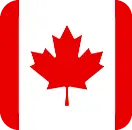
Canada
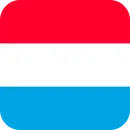
Luxembourg

Madagascar

Monaco
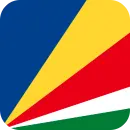
Seychelles

Togo
Just for the Fun of It!
And many others! Marvel yourself at the beauty of Grote Markt, in Belgium, enjoy the spectacular beaches in Madagascar, or explore the Old Quarter in Luxembourg City and never worry again about not understanding what locals are saying!
Difficult pronunciation. French and English pronunciation are worlds apart and things become even more complicated when you take a look at the differences between written and spoken French. But don’t be spooked: French has a lot of fixed and consistent rules that dictate when an ending is silent or how to pronounce a certain combination of vowels. You just need to sit down and study them!
Accents and diacritics. You’ll also have to sort the minefield of accents and diacritics when learning French spelling. Some examples are the grave and acute accents, the cedilla, and the circumflex accent. While these can be nightmarish to acquire at first, soon you’ll realize they are very helpful when learning pronunciation.
False cognates. French and English have had a long-standing relationship since the 11th century, so you’ll find that many terms are exactly the same in both languages. However, there are many more that seem to be similar but are not. Confidence in French means a secret while librarie means bookshop. Focus on these words when learning vocabulary to avoid confusing or even embarrassing situations!
”I would highly recommend Language Trainers to anyone wanting to learn another language. They are extremely professional and have lived up to everything they promised. I am especially satisfied with my instructor. She is a native French speaker, very knowledgeable, and a pleasure to work with. I look forward to my lesson each week.”
Cathy Tamraz - French course in New York
2. How to Learn French
Once you’ve decided to start learning French, you need to choose whether you can do it on your own or whether you want to get the help of a native, qualified tutor. Although you might be tempted to study French alone because it’s completely free if you want to become a fluent French speaker as fast as possible, the smartest move is to start a French course, and to prove it, here are some of the main advantages of studying with a teacher:
Stay motivated: Learning with a tutor is the best way to stay motivated through the whole process, especially when you encounter one of the inevitable stumbling blocks that every learner has to face in their journey to fluency and feel like giving up.
Using updated materials: If you study alone, you’ll have to look for your own materials to build your learning program, which can be quite tedious and the worst thing is you’ll probably end up using outdated, boring resources. On the other hand, if you book a course with one of our teachers, they’ll create amazing lessons based on your own personal interests that will make learning an entertaining experience.
Ask as many questions as you want: One of the best things about studying with a teacher is that you can ask any question that pops into your head, which will help you stay focused and learn much more quickly than if you had to look for every answer yourself.
More practice time: Getting the help of a tutor will ensure that you get to put your skills into practice in every lesson, which is a great way to boost the way you speak, correct your mistakes and sound like a native fast.
3. Should You Take Group or Individual Lessons?
After reading about all the benefits of studying with a tutor, you should now check out the different kinds of lessons you can get. Although both group and individual lessons will help you achieve the fluency you want, there are a few differences you should take into account to choose the kind of lesson that is more suitable for you.
Individual Lessons
Individual lessons are ideal for learners who want their teacher to be completely focused on them and want to be in charge of the pace of their lessons, the schedule, and the content. On top of that, people in these kinds of lessons get more practice time and can make as much progress as they want to.
Group Lessons
The main advantage of group lessons is that you’ll have more language partners who can make the learning process much more fun if you’re the kind of learner who enjoys socializing while they learn. These lessons are also more affordable, and you’ll get the chance to learn from other peers, which can be really helpful.
Contact us to get started with French!4. Learn French for Free
If you’re wondering how you could start learning French right now, there are many wonderful free resources at all levels that you can find online, such as French films, games, books, apps, and more. To make it easier for you, here’s a list of useful resources that you can start using right now:
Watching French movies and series can be a great way to start picking up useful phrases in French and learning new words. On Netflix, you’ll find great shows like Call My Agent and films such as Vicky and Her Mystery, León: the Professional, and How I Became a Superhero.
Listen to podcasts like Coffee Break French, which offers different podcasts divided by subject, and Learn French by Podcast, where you can find beginner-level podcasts that are ideal for those who are just starting, as well as more advanced ones.
Exploring music in French is also a great way to get used to the sounds in French and expand your vocabulary. If you don’t know where to start, take a look at these five artists that will help you develop your listening skills.
Level tests are another incredibly useful resources you can use. On our website, you can access a completely free French level test you can do in just fifteen minutes which will allow you to know exactly how good your skills are before you start a language course.

If you don’t learn to make these four different tones, it will be pretty hard for natives to understand you. Because of that, the smartest thing you can do is get the help of a teacher to sound like a native and master French pronunciation.
Books and easy reads

Le Petit Prince
by Antoine de Saint-Exupéry.

Le Voyage de Babar
by Jean de Brunhoff.

Les Fourmis
by Bernard Werber.

Madame Bovary
by Gustave Flaubert.

La Peste
by Albert Camus

Vingt Mille Lieues Sous Les Mers
by Jules Verne
5. How to Improve Your French Accent
Are you struggling to make yourself understood in French? If so, you might want to work on your pronunciation. Although the best way to sound like a native is by practicing with a tutor, there are many things you can start doing on your own which will help you improve the way you sound in no time.
Record yourself
If you’re not sure how good or bad you sound, you can record yourself while you repeat a small part of a Youtube video or series in French after watching it multiple times, and check how similar you sound to the original recording. If you happen to come across a phrase that’s too challenging, break it down into shorter words until it’s less intimidating and after a few tries you’ll get it right.
Imitate native speakers
A fun way to improve your speaking skills is to mimic the way native speakers talk. You could start with an artist that has a particular accent you enjoy, a famous YouTuber, or anyone whom you can listen to frequently and try to sound like them.
Connect with different speakers from all around the world
If you can already hold a simple conversation in French, you can join online platforms like Meetup and Interpals where you can make new friends from all around the globe who can help you improve your conversation skills. However, if you’re learning French for a specific purpose, you should focus on meeting people who speak the French variant that will help you the most to achieve your particular goals.
Want some extra tips? Take a look at Je ne comprends pas! How To Improve Your French Accent Like a Pro and The 5 New Ways to Perfect Your French Accent, two articles written by language professionals that offer some great advice on the matter.

5 tips to take your French accent to the next level.
READ THE ARTICLE >
5 resources to improve your speaking skills from home.
READ THE ARTICLE >6. Great Tips To Learn French Vocabulary
Learning new words in French can be daunting, and sometimes, a bit monotonous. However, there are many methods you can use to make expanding your vocabulary a fun, interesting part of learning the language and expressing yourself like a true Frenchman. Let’s go over some of the most popular methods:
Use Apps to Learn French in Your Free Time
There are wonderful apps you can download on your phone to learn new words whenever you have some free time. If you enjoy making flashcards to remember new vocabulary, you could try Quizlet or Memrise, where in addition to making your own deck of French words, you can check out the ones made by other users. You could also check out Mondly and Drops, which are excellent for beginners who want to learn their first words in French or other languages.
Watch Out for False Cognates
False cognates are words that look and sound alike in two languages, but mean different things. Some examples of this are the French word apologie, which is similar to the word apologie in English but means justification or defense of a person or object, the word librairie, which looks like librairie but actually means book shop, and the word monnaie, which sounds similar to money but means loose change.
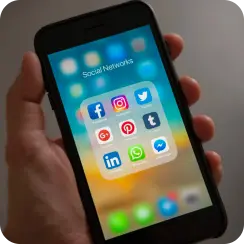
Telephone
téléphone
Biology
biologie
Anniversary
anniversaireMake Associations
Instead of learning random words on their own, a useful method to remember new vocabulary is to learn words that are related to the same topic at the same time. You could, for example, devote one day to learning vocabulary related to animals, then phrases you can use at work, and another day to ways of talking about the weather.
Write it Down
Many people find it useful to find new words down as soon as they hear them. You could write them in a small notebook you can carry around, or in useful apps to make notes like ClevNote and before you know it you’ll be able to use many more words while you talk or write and review your progress as time goes by.
Start Your French Language Journey Today7. Learn About Francophone Cultures
addition to developing your writing, speaking, reading, and listening skills, it’s essential you take the time to learn about the various francophone cultures. This will keep you interested in the language, it will allow you to expand your horizons and help you understand the way the different communities that speak French think and see the world. So on top of devoting time to studying grammar and vocabulary, don’t forget to immerse yourself in the art, traditions, customs, and music from whichever francophone country that calls your attention, and before you know it you’ll understand most of the cultural references in the media, films and TV shows. If you’re interested in knowing more about the local culture in the French-speaking part of Canada, check out Five Things You Didn’t Know About French Canada, which contains some interesting facts that you might not know. Alternatively, if you’re curious about France and its wine culture, Fantastic French Wineries That Offer Tastings and More is the perfect article for you!
After exploring the numerous benefits of speaking French, what’s keeping you from becoming the proficient speaker you know you can be? Start learning at Language Trainers and get all the help you need to achieve your potential! No matter what your language goals are or how much time you can devote to studying French, if you send us a quick inquiry today, we’ll have one of our native tutors create a language course that you’ll love! If you’re still not sure what’s the best course for you, take a look at all the different kinds of courses we offer or simply contact us and one of our team members will answer any questions you might have!

Switch between online and face-to-face French classes with a hybrid course!
Existing student?
Continue your language development and learn with your same teacher face-to-face
New Student?
Start your clases online and switch to face-to-face later
“Testez votre niveau de français”...
Test your French skills
Preferred Supplier
Language Trainers is the preferred supplier for



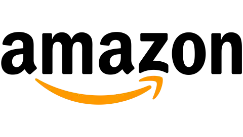
How to Book

Take our French Language Level Test.

Let us know why you need to learn French and include the time and location that best suit you.

Review our quote and, if you are happy with it, receive our invoice and Agreement form.

Sign our Agreement form and submit a deposit* for the course.

Receive confirmation from our team with your French tutor’s details.

Begin your French training and receive your French course book.
Click to see more.
Frequently Asked Questions
Case Studies: <strong>Clients</strong>

“I have already recommended Language Trainers to at least ten people since doing the program”
French course in CaliforniaClient testimonials
See some of the testimonials we have received from our clients.”I am really enjoying my lessons with Chloe. She is a great instructor and very interested in helping me to achieve all my French language goals.”
French course in San Antonio”Ema is a great teacher and is starting to set the standard higher for me. Language Trainers is very flexible with the lessons, which makes learning easier. ”
French course in















